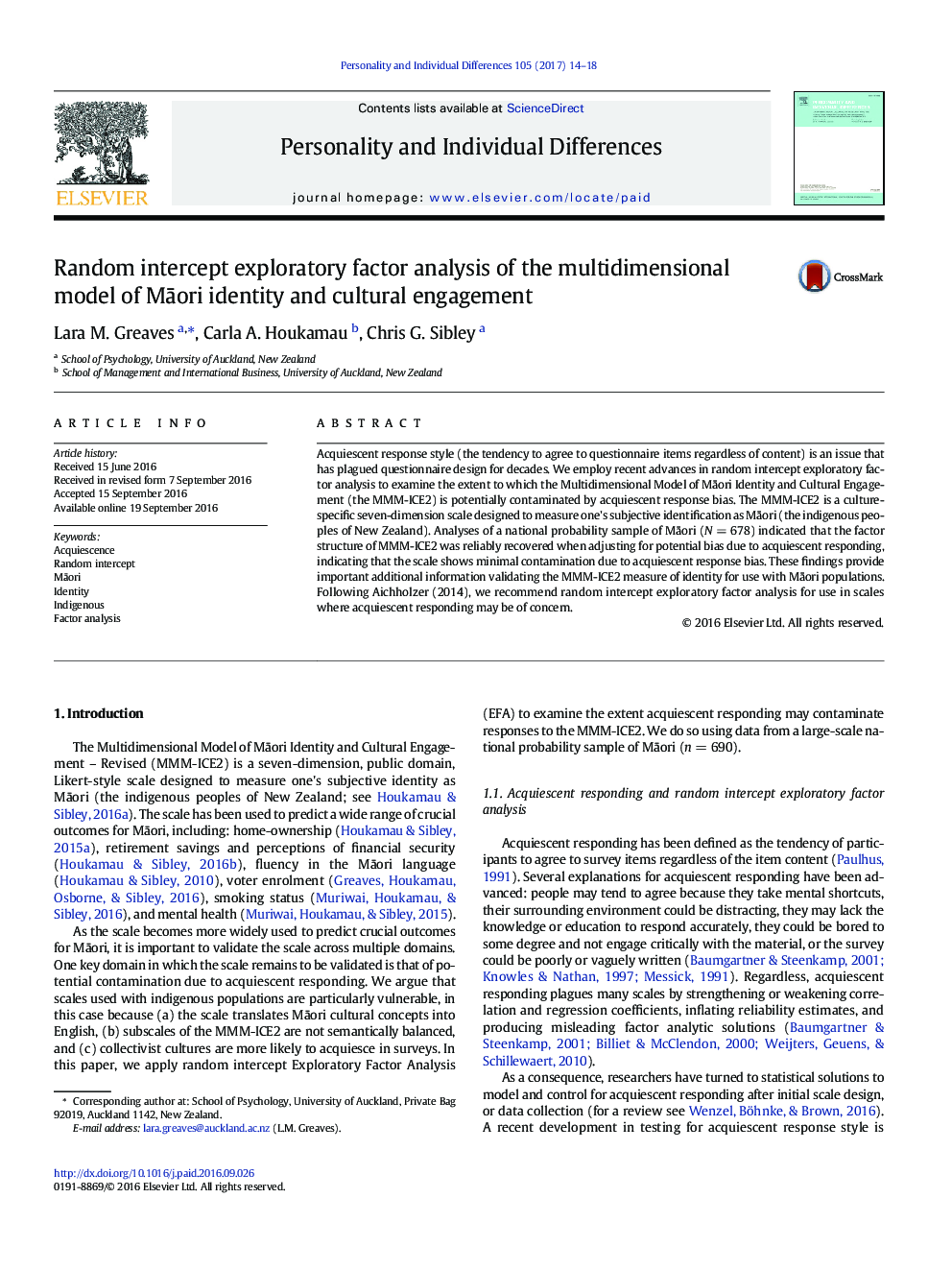| Article ID | Journal | Published Year | Pages | File Type |
|---|---|---|---|---|
| 5036023 | Personality and Individual Differences | 2017 | 5 Pages |
â¢The scale used, which assesses subjective ethnic identity, had wording challenges.â¢Random intercept EFA, was applied to model acquiescent responding.â¢The expected seven dimension factor structure was recovered.â¢Four of the 54 survey items may need future improvement.
Acquiescent response style (the tendency to agree to questionnaire items regardless of content) is an issue that has plagued questionnaire design for decades. We employ recent advances in random intercept exploratory factor analysis to examine the extent to which the Multidimensional Model of MÄori Identity and Cultural Engagement (the MMM-ICE2) is potentially contaminated by acquiescent response bias. The MMM-ICE2 is a culture-specific seven-dimension scale designed to measure one's subjective identification as MÄori (the indigenous peoples of New Zealand). Analyses of a national probability sample of MÄori (NÂ =Â 678) indicated that the factor structure of MMM-ICE2 was reliably recovered when adjusting for potential bias due to acquiescent responding, indicating that the scale shows minimal contamination due to acquiescent response bias. These findings provide important additional information validating the MMM-ICE2 measure of identity for use with MÄori populations. Following Aichholzer (2014), we recommend random intercept exploratory factor analysis for use in scales where acquiescent responding may be of concern.
